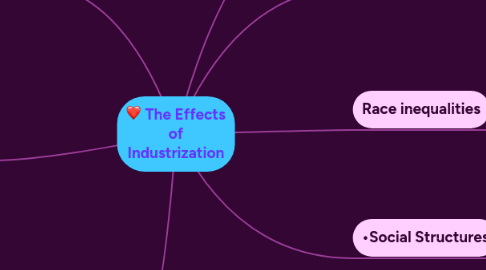The Effects of Industrization
da Anabette D'Entremont


1. •Extension of voting rights (chartist movement)
1.1. the chartist movement hoped that a democratic government would regulate new technologis and promote popular education.
1.2. revoluions of 1848 and 1849: brought protest ahead
1.3. artisians and workers in Britain generated a new movment to gain the right to vote in 1830s and 1840s.
2. •Romanticism
2.1. central artistic vision began in the first half of the century (with emotions and impressions - not the usual reasoning and generalization)
2.2. artists portrayed passion (sometimes maddness) - not the previous calm mood. They expressed emotions in their works.
2.3. saught to violate the whole traditional Western artistic standards
2.4. increasingly abstract in their work
3. socialism
3.1. deoends on the power of grievance of the working class, w/ the help of allies from other groups
3.2. reflected the thoery of German theorist Karl Marx - focused on human perfectibility.
3.3. few exempletary communities where work and rewards would be sared - ending the evil of capitalism
4. •Gender roles/issues
4.1. feminist movements: (arose) they saught various equal legal and economic gains for women (which would include education, profession, etc)
5. •Social Structures
5.1. until 19th century: neither Dutch and British colonies had no push for change in social structure
5.1.1. The British enforced divisions of the previous Hindu caste system
5.1.2. both made it clear they had little interest in spreading Christinaity among the Indians and Javanese
5.2. British drew heavy precdents on older colonies
5.2.1. particularly India
5.2.2. in establishing administrative, legal, and educational systems
6. •Mass leisure culture
6.1. fortunes were made by cheating the British East India Company
6.1.1. made by cehating them and exploiting the Indian peasants and artisans.
6.1.1.1. bad manners and conspicous consumptions of these upstarts (known as NABOBS)
6.1.1.1.1. misconduct of Nabobs led to Bengal famine of 1770 --> 1/3 of population that at one point was strong was now dead.
